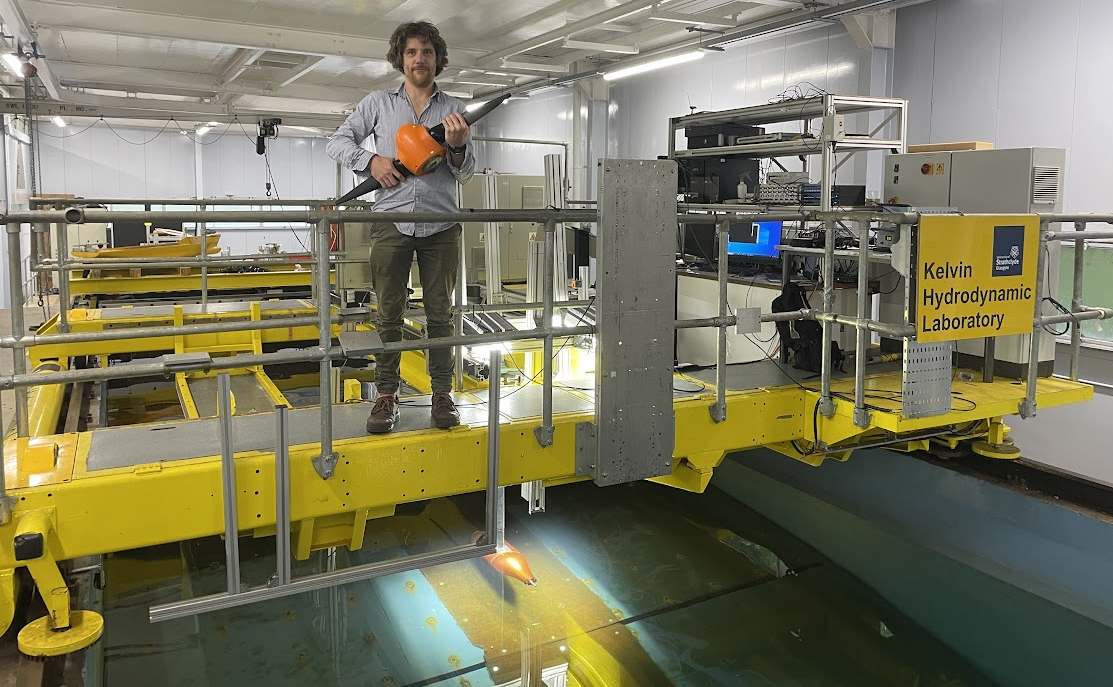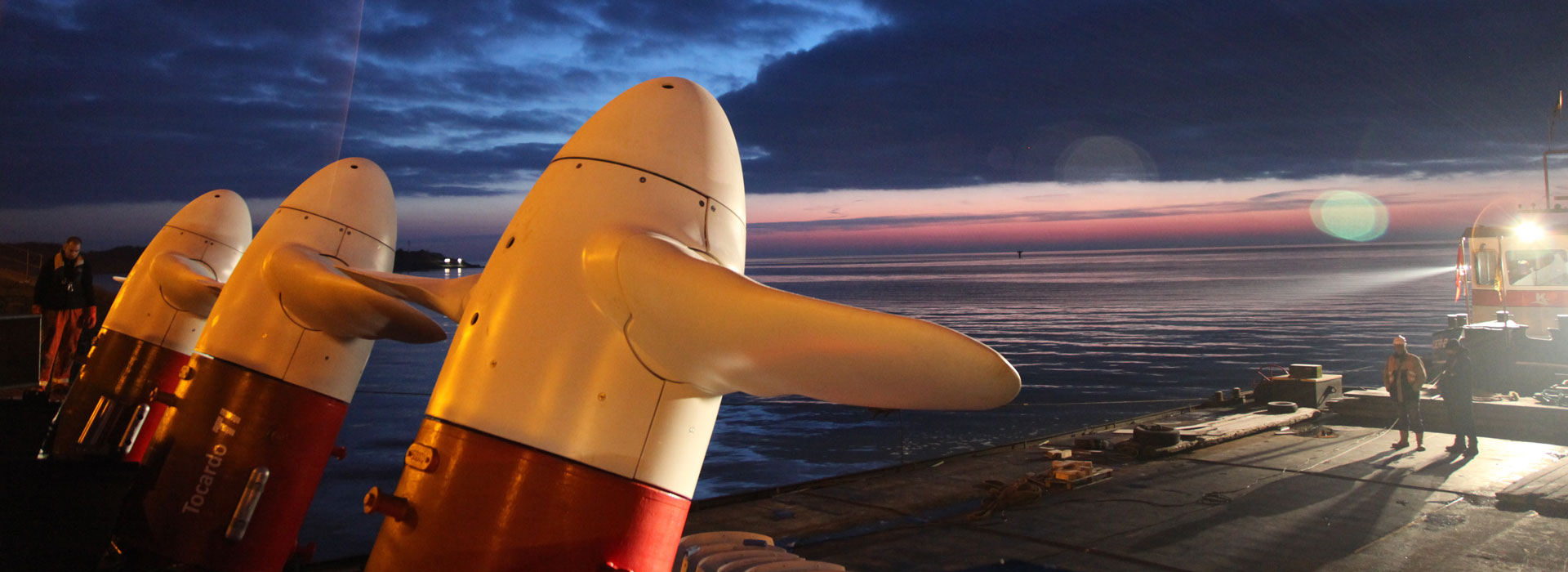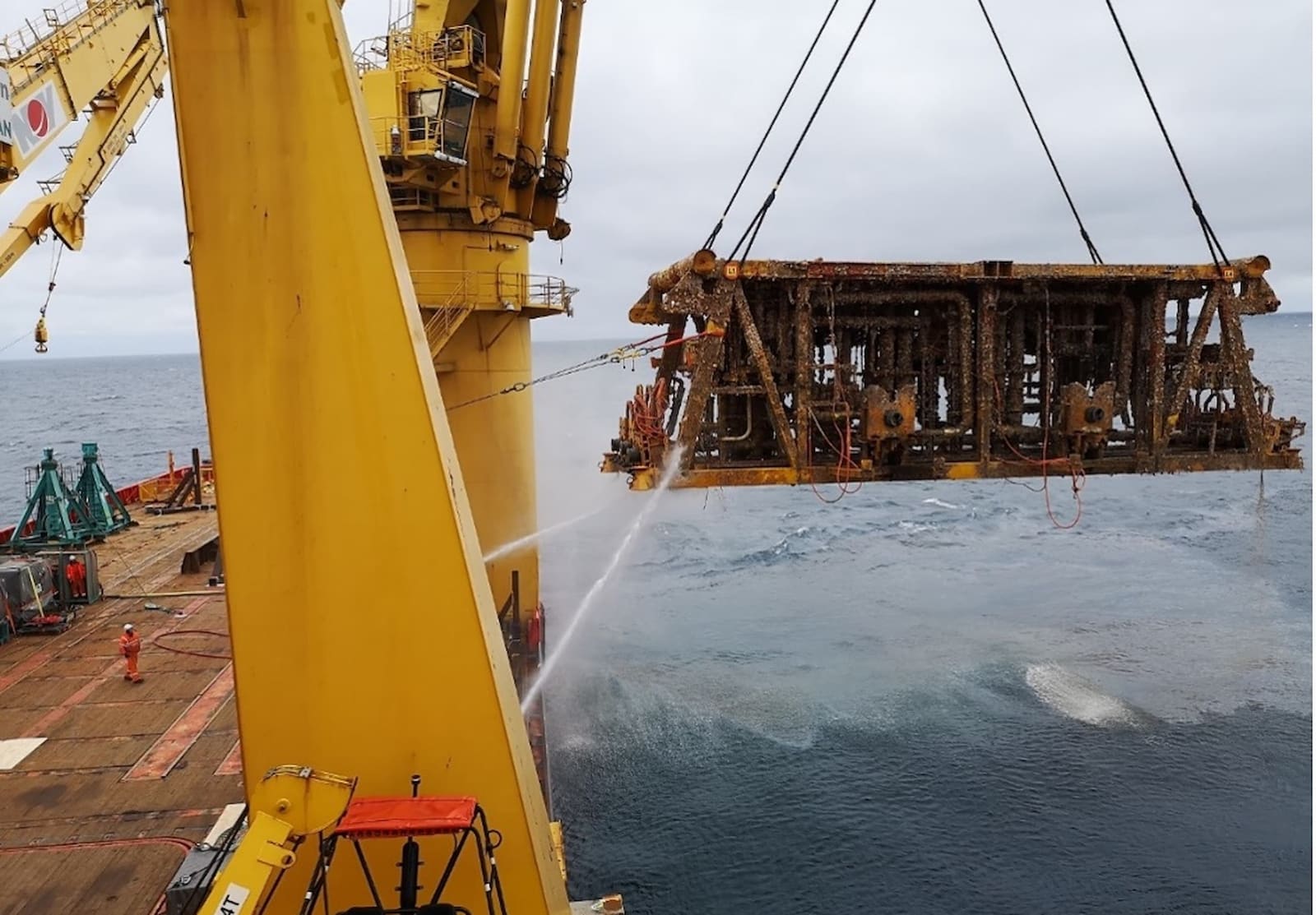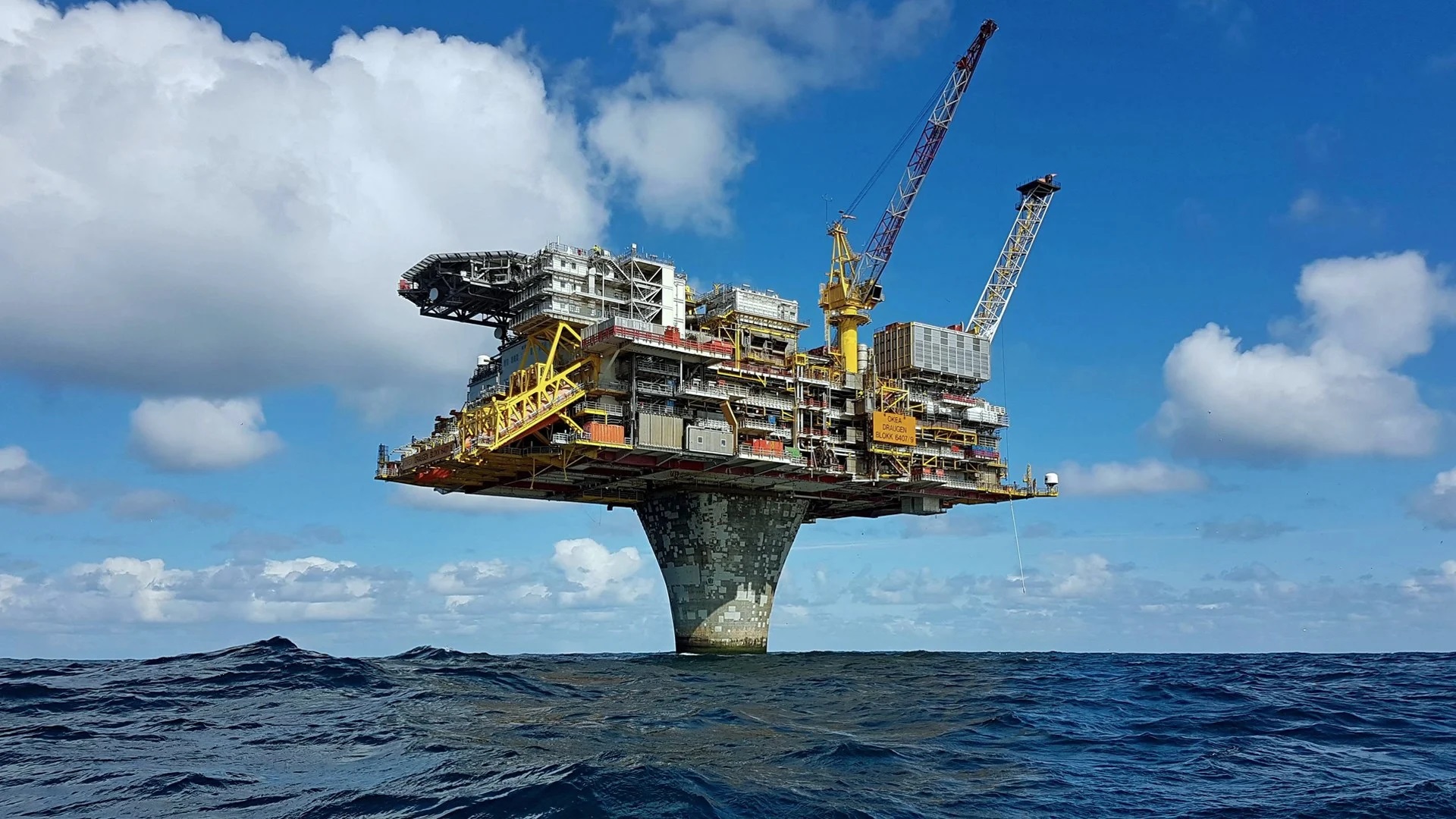Inyanga Marine Energy Group has successfully completed hydrodynamic testing of the revolutionary Passive Pitch Unit for its patented HydroWing technology. HydroWing was recently awarded the largest tidal energy project in the UK in Allocation Round 6 of the UK government’s Contracts for Difference scheme and the company is now on course for deploying a 20MW tidal energy project at Morlais in Wales, in addition to other projects around the world.
The hydrodynamic testing was conducted at the Kelvin Hydrodynamics Laboratory at the University of Strathclyde in Scotland.
Richard Parkinson, CEO of Inyanga Marine Energy Group, said: “These exciting test results mark a major milestone in our mission to deliver low cost, efficient and reliable tidal energy arrays. Our engineering team have excelled in delivering a game-changing turbine and blade solution which doubles annual energy production, making our Morlais 20MW project highly investable.”
The test results confirm that the cutting-edge blade rotor on HydroWing’s tidal energy device can automatically regulate its own pitch using its innovative, self-adjusting system. This breakthrough validates the HydroWing technology and it is the culmination of two years of intensive development by HydroWing’s R&D team.
Richard Parkinson explains: “With this new pitch regulation system, the blade rotors can now scale to twice the swept area, whilst ensuring safety and efficiency, even in the harshest ocean conditions. This technology advance unlocks new possibilities for harnessing marine energy at a larger scale and paves the way for future innovations in predictable sustainable power generation. The passive pitch mechanism not only regulates the output of the device but protects the device from adverse conditions such as wave loadings, grid loss and storm surges. Passive pitch has major benefits over active pitch in terms of reliability, cost and load damping, while also achieving increased energy yield.”
The project has been supported by the IDCORE Programme through which HydroWing have engaged two engineers as part of their EngD thesis.
George Dadd, Lead Turbine Engineer at HydroWing, said: “The tests on the passive pitch technology have behaved exactly as calculated, validating the ‘proof of concept’. We will now continue the validation process with a full scale test rig.”

For more information, contact Lynn File: lynn@brandinnovation.co.uk
About Inyanga Marine Energy Group
Inyanga Marine Energy Group is an innovative company which is developing cutting-edge solutions for the global offshore renewables industry. Inyanga Marine Energy Group operate a highly experienced and specialised team of offshore engineers from their head office in Falmouth, UK. The company also has offices in Rennes, France, and Anglesey, Wales.
Inyanga Marine Energy Group has two divisions – HydroWing, which focuses on tidal energy technology development, and Inyanga Maritime, which delivers offshore engineering and installation. The company aims to advance through to deployment of the innovative tidal energy converter, the HydroWing, to provide cost-effective, reliable, and predictable power to communities around the globe.
HydroWing was the largest tidal stream project in the UK to be successful in the UK government’s latest Contracts for Difference round. The project will be located at the Morlais tidal energy site in Anglesey, which is managed by the social enterprise Menter Môn. The Morlais site is the UK’s largest consented tidal energy scheme.
In September 2024, Inyanga Marine Energy Group was awarded 10MW for their tidal energy project at Morlais through Allocation Round 6 (AR6) of the UK government’s Contracts for Difference (CfD) scheme. This doubles the scale of their project, which uses their innovative HydroWing technology, to 20MW, building on their successful 10MW award in the previous allocation round.
Commercialisation of the tidal energy sector has so far been held back by high operations and maintenance costs. HydroWing’s next-generation technology meets that challenge head-on.
For more information, visit https://inyangamarine.com/
About Kelvin Hydrodynamics Laboratory
Kelvin Hydrodynamics Laboratory is at the University of Strathclyde in Glasgow. It the second largest hydrodynamic test tank in the UK. It is one of the leading providers of testing services to the UK wind, wave and tidal energy industry. It provides repeatable and controllable conditions for testing of wind, wave and tidal energy devices on a moderate scale (1:50th to 1:25th scale depending on application).
High-quality single-frequency waves and random sea-states may be generated with wave heights well over 0.5m. The tank is commonly used for a wide range of marine hydrodynamics tests including measurement of: the seakeeping performance of floating wind turbine platforms: wave energy converter power extraction efficiency and floating structure’s survivability under extreme loading conditions: ship resistance and sea-keeping; unsteady motion of ships and floating bodies; survivability of damaged ships; hydrodynamics of towed surface-piercing and submerged bodies; ocean engineering studies including wave impact and slamming studies; marine renewable energy studies including device performance, maintainability and survivability.
About the IDCORE Programme
IDCORE is an industry-based Doctoral Training Centre, training EngD (Engineering Doctorate) students in Offshore Renewable Energy. IDCORE has been running as a training centre since 2012 and so far, has already recruited and trained over 100 Offshore Renewable Engineers.
The EPSRC Industrial CDT in Offshore Renewable Energy (IDCORE) is a collaborative partnership between the University of Edinburgh, University of Exeter, University of Strathclyde, Scottish Association for Marine Science., and, from 2024, Swansea University. All five institutions bring together renowned academic expertise in Offshore Renewable Energy and world class research facilities.
The vision of IDCORE is: ‘To attract the very best EngD students into a vibrant learning environment and, in partnership with industry, train them to deliver world-class industrially-focussed research outcomes that will accelerate the deployment of offshore wind, wave and tidal-current technologies, positioning the UK to meet its 2020 & 2050 targets for renewable energy generating capacity, and expanding and sustaining a community of high-quality post-doctoral staff for the UK offshore renewable energy industry’.
IDCORE’s objectives and programme are strongly aligned with the RCUK, ETI, and industry strategies to meet the UK’s ambitious deployment targets for offshore renewable energy technologies. This requires the development of new techniques and technologies to design, build, install, operate, and maintain devices in extreme environments at an affordable economic cost with minimal environmental impact. Find out more: https://www.idcore.ac.uk/


